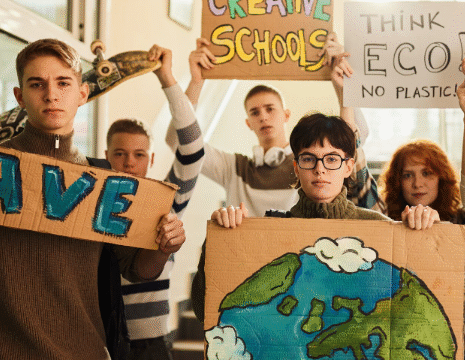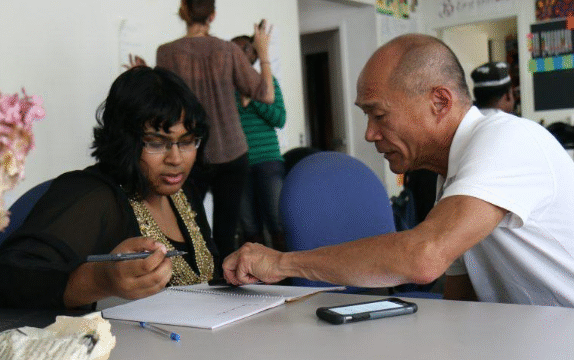Across the globe, young people are increasingly stepping
into leadership roles, raising their voices to demand quality
education for all. These youth activists are not waiting for
change to arrive; instead, they are actively pushing for improvements in schools, greater access to learning, and policies that place education at the heart of community development. Their determination reminds the world that education is not only a fundamental right but also a pathway to opportunity and equality.
The role of youth in shaping the future of education cannot be overstated. In many places, children and teenagers are the most affected by the challenges of underfunded schools, lack of materials, overcrowded classrooms, and limited access to technology. Because they live these realities every day, they have firsthand knowledge of what needs to change. Their voices bring authenticity and urgency to the conversation, inspiring educators, policymakers, and communities to listen more closely.
One of the most powerful aspects of youth activism in education is the creativity they bring to their advocacy. While older generations may rely on traditional campaigns and lengthy policy debates, young people are often quick to adopt new platforms and tools. They use social media to tell their stories, share videos that highlight challenges, and create campaigns that attract international attention. These platforms allow students from different corners of the world to connect, exchange ideas, and build solidarity around the shared mission of universal education.
In recent years, youth-led movements have drawn attention to the barriers that keep many children out of school. Issues such as poverty, gender inequality, language barriers, and the lack of safe learning environments are at the forefront of their campaigns. Young activists have been calling for free textbooks, safe school buildings, and affordable transport to classrooms. Others have pushed for the inclusion of digital tools and internet access in schools, arguing that technology is no longer a luxury but a necessity in the modern world.
What makes youth activism especially powerful is the hope it inspires. Adults may sometimes grow weary of slow policy changes or the challenges of bureaucratic systems, but young people often bring fresh energy and a sense of urgency. Their belief that education can transform lives is contagious, drawing communities together to support their vision. When a student speaks passionately about their dream of becoming a doctor, teacher, or engineer but faces obstacles because of limited educational opportunities, it resonates deeply with audiences. These personal stories make the case for stronger investment in education more compelling than numbers or statistics ever could.
Around the world, there are countless examples of young activists making a difference. In rural communities, students have formed groups to repair damaged classrooms and organize informal study sessions for younger children. In cities, youth organizations run awareness campaigns to encourage parents to keep their children in school rather than sending them to work. Some students have even stepped onto global stages, speaking at international conferences to remind leaders of their responsibility to ensure that every child has the chance to learn.
One of the most inspiring qualities of these young leaders is their commitment to inclusivity. They recognize that education should not leave anyone behind, whether due to disability, economic hardship, or social background. Many campaigns emphasize the importance of equal opportunities for girls, highlighting that societies grow stronger when everyone has the chance to reach their potential. Others focus on protecting education in conflict-affected areas, where schools are often disrupted or destroyed, leaving children without safe places to learn.
Youth activists are not only calling for access to education but also for better quality. They understand that simply being in a classroom is not enough if teachers are undertrained, resources are outdated, or lessons do not prepare students for the future. Many advocate for curriculum reforms that include life skills, digital literacy, and lessons on environmental sustainability. By doing so, they are reminding leaders that education must evolve to meet the challenges of the modern world.
Their work also highlights the importance of community involvement. Young people often rally parents, teachers, and local organizations to join their efforts, creating a united voice that is harder to ignore. This spirit of collaboration demonstrates that education is not just the responsibility of schools and governments but a shared duty of society as a whole. When young people take the lead, they invite everyone around them to become part of the movement.
It is worth noting that youth activism in education is not limited to protest or advocacy alone. Many young leaders are creating solutions themselves. From building small libraries in villages to designing mobile apps that help with homework, they show that innovation can come from any age group. These practical projects prove that youth can be drivers of change not only in words but also in action.
The global community benefits immensely from supporting and amplifying these voices. When governments, organizations, and communities listen to young activists, they gain insight into the real challenges students face. Partnerships between youth groups and education policymakers often lead to more relevant and effective reforms. Moreover, when young people feel that their voices matter, they are encouraged to stay engaged in civic life, becoming responsible leaders in the long run.
Supporting youth activists does not always require grand gestures. Sometimes it begins with offering platforms where their voices can be heard, such as student councils, community forums, or online campaigns. Other times, it means mentoring young leaders, providing training, or simply showing respect for their ideas. Each step taken to encourage young advocates strengthens the larger movement toward fair and inclusive education.
The energy, creativity, and courage of youth activists fighting for education remind us of the immense power of young voices. They are reshaping the conversation around schools and learning, proving that age does not limit the ability to influence change. As they continue to speak out, they are building a future where education is not a privilege for a few but a right guaranteed for everyone.
The story of these young leaders is one of resilience and determination. They may face obstacles, but they continue to stand up because they believe in a better tomorrow. Their vision is simple yet powerful: a world where every child can sit in a classroom, learn without fear, and dream without limits. Their activism is not only about improving education systems but also about shaping societies that value fairness, opportunity, and hope.
In the end, the fight for education is not just about textbooks, classrooms, or exams. It is about dignity, opportunity, and the chance for every young person to build a meaningful life. Youth activists understand this deeply, and through their voices and actions, they are lighting the way toward a brighter, more inclusive future. Their movement is a reminder that the power to transform education lies not only in policies and institutions but also in the determination of young people who refuse to give up on their dreams.






